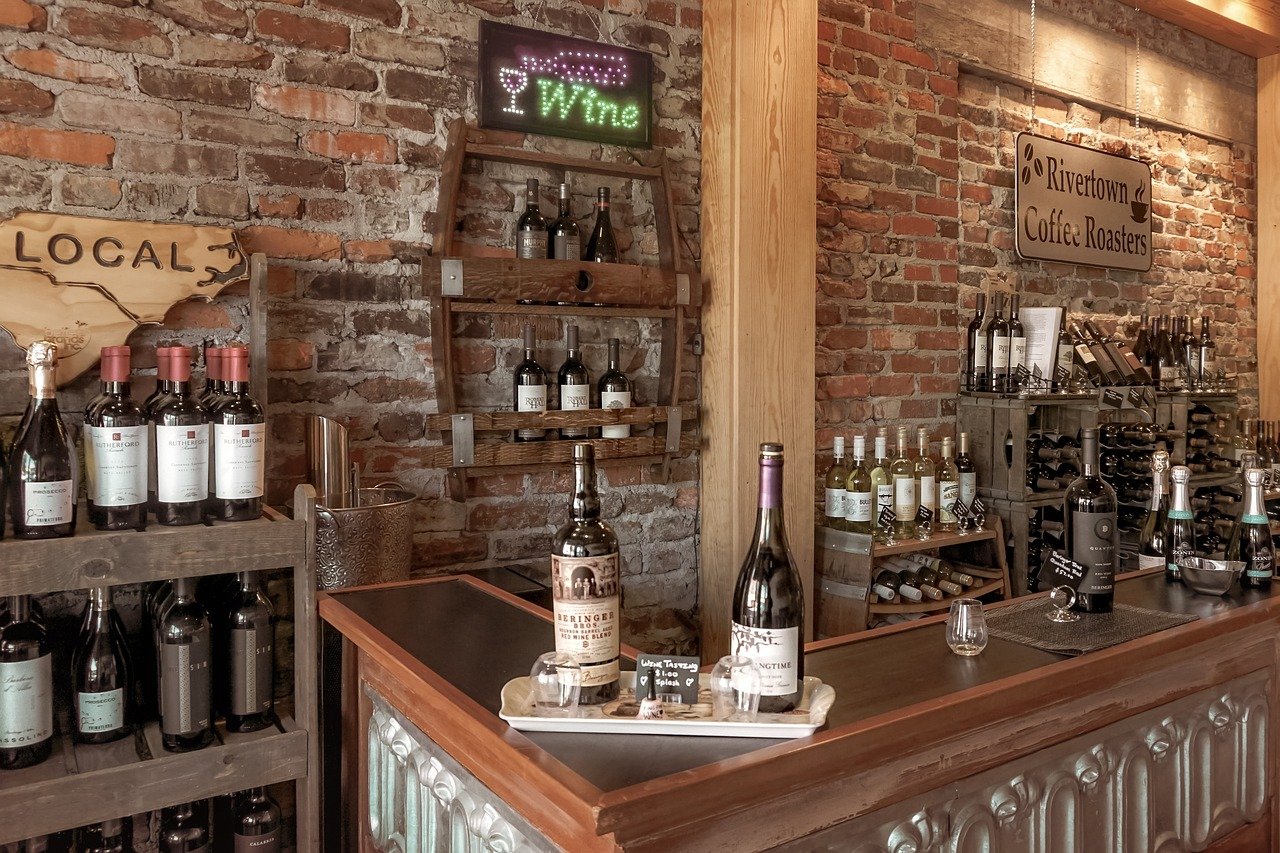A sexy cocktail bar is very often the hero of a design scheme taking centre stage of the interior design of a restaurant. Cocktails are a great addition to every restaurant menu. Why?
1. They look great - great for social media as people often take pictures of their drinks/boomerangs etc!
2. They taste great so people always order more than one! Especially if you do a 241 cocktail deal! Hello Happy Hour!
3. From a business point of view, they have the best profit margin on your entire menu, so it will pay to design them well, have a great bar and promote it!
Whether you have a small functional bar or a statement show piece. Here are some ideas to create the instagram feature that everyone will be flocking to!
1. Small but perfectly formed discreet Cocktail Bar design
Due to lack of available space in this beautiful Italian restaurant in North London and the wood fire stove taking centre stage. The cocktail bar was designed behind the counter. Ambient lighting creates the perfect mood for cocktails while the metallic wall covering adds a touch of luxury as the backdrop. Add some locally sourced spirits (Old Bakery Gin being literally down the road!) you have a beautiful functional bar that packs a punch. Now you just have to decide if you want grapefruit or cucumber in your glass!
2. Create a Fun, Unique and quirky Cocktail Bar design!
If there is an opportunity to be unique, fun and quirky you need to take it straight away! Sustainable design was at the core of this restaurant and bar design. We designed this bar using old whiskey barrels, and created a feature from them by using gold walls and strategically placed lighting to highlight the glass bottles. I could not help but wonder where the whiskey they once held, ended up. Maybe in me after a night out? Who knows!
A fun and creative bar is easy to tailor to your scheme and will become a talking point for your customers even if they forget what else they did that night!
3. A statement Bar Design
Creating a focal point to draw customers in from the street or through the restaurant is a great way to encourage sales and create a beautiful interior scheme.
As the name suggests its all about go big or go home. A statement bar forms the nucleus of the space, a place customers would naturally gravitate towards. The above bar is clad in metallics and jewel tones so opulence is the theme here.
4. K.I.S.S. - A super simple approach to the bar design
Keep things super simple. This works really well for specialist bars/restaurants for example wine bars or if you have a craft beer focus. Keeping it simple allows the product to become the centre of attention and helps segment the products if required. As an example you could have a white wine collection and a red and a rose’ or you could perhaps group by country/region.
The options are endless but it is key to ensure the theme is reflected throughout the space for this to be most effective. Keep things simple with raw materials throughout such as wood or brick and keep lighting edgy and minimal.
5. Clean and Contemporary Bar Design
The most commonly used type of design as it is relatively easy to execute. However using clever lighting this style can look incredibly high end and elegant, with different styling it can also be made to suit a very casual environment. They key is to ensure the spacing is correct for the range of bottles on offer and to ensure it is well made, designed and fitted to support the weight.
Play with the materials, style of shelves, colours and you can create some really incredible looking contemporary bar designs.
Which one is your favourite? Let us know in the comments below!





